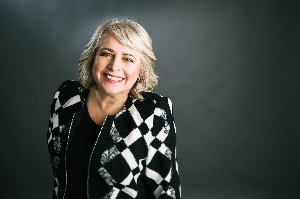
Mint, part of the Amplifi group, which includes the Sage and Totara financial planning businesses, saw its fee income for the year ended March fall by 13.4%, or by $595,930 to $3.9 million.
Executive chair Rebecca Thomas says Amplifi’s strongest growth has been in wealth management while the funds management business has been “moribund.”
The Mint Australasian Equity Fund, the company’s largest, both performed well and brought in a 12.1% increase in management fees in the latest year to $2.1 million.
The fund grew in size from $182.3 million to $205.7 million in the year and its annual return before tax of 3.38% outperformed its index benchmark’s return of 1.36%.
However, the Mint New Zealand SRI Equity Fund, which focuses on ethical investments, also outperformed its benchmark but still suffered a funds outflow.
The pre-tax return of 2.32% compared with the benchmark’s 1.36% return, but the fund shrank by $12.5 million to $80.7 million.
Thomas says that reflects a global trend of investors moving out of ethical funds into more mainstream funds.
“If you can’t invest in coal or oil and gas, and oil and gas has been the best performing sector,” investors in SRI-type funds miss out, she says.
Mint’s fee income from the SRI fund fell by 14.8% to $721,166 in the latest year.
Both the company’s diversified income and growth funds greatly under-performed their benchmarks and their fee income dropped precipitously.
The Mint Diversified Income Fund’s fee income fell 44.8% to $495,598 with the pre-tax return of 5.57% comparing with the benchmark return of 6.04%. The fund’s size fell from $77.6 million to $58.9 million.
Thomas says many investors had switched to term deposits, both for the higher rates that had been on offer before the Reserve Bank began cutting interest rates from August last year, and for capital protection.
The Mint Diversified Growth Fund’s fee income fell 26.4% to $449,483 with the pre-tax return of 2.68% comparing to the 5.7% return of the benchmark. Still, the fund’s size rose from $43.7 million to $52.5 million in the year.
Thomas says both diversified funds invest in both NZ and global assets and their underperformance reflects the fall in the NZ dollar – both are fully hedged back to NZ dollars.
She says just about all such funds performed badly in the latest year – Quay Street’s equivalent fund was the best performer but that mostly reflects the fact that it’s unhedged.
“It has been a very painful ride over the last few years,” she says, but adds that doesn’t mean the investment strategy should change – changing would be “a disaster.”
“We firmly believe active management works in NZ over the long term,” Thomas says.
The fund returns include both Mint’s wholesale and retail funds under management.
The company’s net profit for the year ended March fell 18.6% to $642,728.



Comments
No comments yet.
Sign In to add your comment